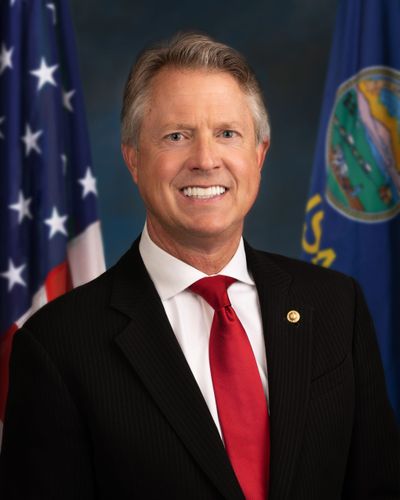Senators press federal agencies on concerns over fraudulent UCO imports

Sen. Roger Marshall, R-Kan.
June 24, 2024
BY Erin Voegele
A bipartisan group of six senators, led by Sen. Roger Marshall, R-Kan., on June 20 send a letter to the U.S. EPA, USDA, U.S. Trade Representative, and U.S. Customers and Board Protection expressing concern with dramatic increases in used cooking oil (UCO) imports from China.
The letter notes that the U.S. imported less than 200 million pounds of UCO in 2020. Imports increased to more than 3 billion pounds in 2023, with more than 50% of imports coming from China.
“As evidenced in recent news coverage, there is concern by some in the renewable fuels industry that large amounts of imported UCO may be a blend of UCO with virgin vegetable oils such as palm oil, which is directly linked to deforestation in Southeast Asia,” the senators wrote. “This would constitute fraudulent value distortion of the commodity designed to take advantage of U.S. tax incentives in addition to renewable identification number (RIN) fraud under the [Renewable Fuel Standard]. If true, this would have an especially punitive effect on U.S. agriculture, as imported UCO bears a lower carbon intensity score than domestically produced agricultural feedstocks, which incur punitive and unnecessary indirect land use change penalties in state and federal programs, as well as onerous verification and reporting requirements required of farmers to validate carbon-friendly practices.”
Advertisement
The senators note that there are good actors utilizing UCO as part of a diverse array of feedstocks in their renewable fuel production. They stress that domestic sources of UCO are held to rigorous verification and traceability requirements, but express concern with the lack of transparency surrounding U.S. efforts to verify imported UCO. The senators are specifically concerned over the lack of transparency as it relates to efforts to ensure the integrity of imported UCO by validating that traceability requirements have been met and evaluating the chemical composition of the imported UCO. “The Biden administration has created vigorous standards to verify, not just trust, American producers, and it is imperative that the same scrutiny is applied to imported feedstocks,” the wrote.
In the letter, the senators cite past issues with fraudulent UCO from China that was entering the European market. They explain that a European Union-funded Transport & Environment released last year found that concerns over fraudulent UCO necessitated greater scrutiny on imports to prevent the mislabeling of USO. “This increase in focus on the integrity of the imported UCO coincides with a steep decline in European imports and increased imports into the United States,” the senators wrote.
To date, increased UCO demand in the U.S. has been primarily driven by state-level clean fuel policies. According to the senators, that demand will be amplified as clean fuel tax credits established by the Inflation Reduction Act are fully implemented.
Advertisement
Within the letter, the senators ask the four federal agencies to respond to several questions regarding their actions to ensure imported UCO is not counterfeit. The agencies are asked to respond to the questions within 30 days.
In addition to Marshall, the letter was signed by Sens. Sherrod Brown, D-Ohio; Pete Ricketts, R-Neb.; Deb Fischer, R-Neb.; Chuck Grassley, R-Iowa; and Joni Ernst, R-Iowa.
A full copy of the letter is available on Marshall’s website.
Related Stories
Reps. Mike Flood, R-Neb., and Troy A. Carter, Sr., D-La., on July 21 reintroduced the SAF Information Act. The bill directs the U.S. EIA to more explicitly include SAF data in its weekly and monthly reports.
The U.S Department of Energy Bioenergy Technologies Office, in partnership with the Algae Foundation and NREL, on July 21 announced the grand champion and top four winning teams of the 2023 - 2025 U.S. DOE AlgaePrize Competition.
The European Commission on July 18 announced its investigation into biodiesel imports from China is now complete and did not confirm the existence of fraud. The commission will take action, however, to address some systemic weaknesses it identified.
On July 18, U.S. EPA announced a reduction in force (RIF) as the agency continues its comprehensive restructuring efforts. With organizational improvements, EPA is delivering $748.8 million in savings.
The U.S EPA on July 17 released data showing more than 1.9 billion RINs were generated under the RFS during June, down 11% when compared to the same month of last year. Total RIN generation for the first half of 2025 reached 11.17 billion.
Upcoming Events










